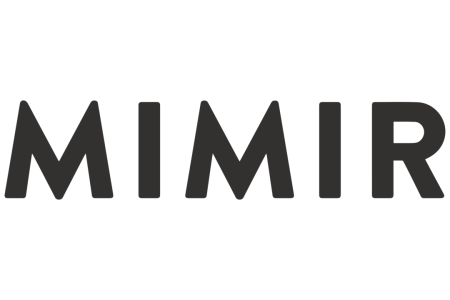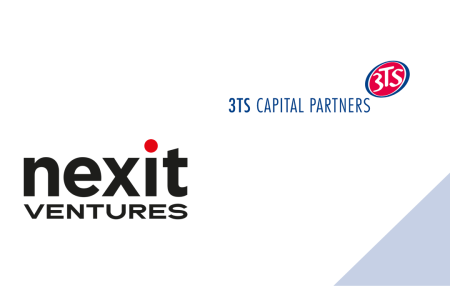
Private equity professionals in Finland come from similar backgrounds: degrees in finance, industrial management or perhaps law. “My background is a little unusual” said a colleague with a degree in economics. But while their formal education may tend toward the crunching numbers and mastering excel functions, at its heart private equity is a “people business”. Making decisions about how to invest does indeed involve analysing markets and assessing strategy, but the hardest and most important part is understanding the team you are investing in.
I recently worked as a researcher with the fund investments team at Tesi, helping the team reflect upon and develop the team evaluation aspect of investment due diligence. As a doctoral researcher in social anthropology, my own education has included very little excel-based number crunching, but it has involved a fair amount of thinking about and working with the kind of rich, qualitative data that comes from in-depth conversations.
My role then was not so much to be an expert in team evaluation itself, but rather to bring my “anthro” perspective to help colleagues reflect upon the “people” business aspect of their work. Indeed, I was intrigued to find similarities between their work and that of anthropologists. Both seek to establish reciprocal relationships based on trust as foundational to their work. Both also conduct in depth and sometimes quite personal interviews within the context of such relationships—anthropologists as part of their research projects, investors when doing due diligence, for example.
What kind of knowledge is legitimate?
One area of difference, however, is the relationship to the kind of knowledge created as part of such work. Working with such qualitative knowledge is the bread and butter of anthropological research. Mainstream views among businesspeople about the kind of knowledge that is legitimate and valuable, however, prioritise the apparently hard, objective facts of economic analysis, quantitative survey data, or psychological profiles produced from standardised tests.
On the other hand, there is some unease at articulating the kind of subjective and qualitative data that emerges from interviews and other conversations. This is not to say that the usefulness of such information is not recognized. Indeed, spending time spent networking, socializing, and gossiping with peers and partners is a material part of understanding opportunities and risks in ones’ own portfolio and the market at large. The challenge emerges when moving from such informal contexts to more formal proposals and reports.
How does one build trust and understand team dynamics?
In interviews with my colleagues at Tesi and partners of Tesi’s portfolio funds, two terms came up consistently as central to the task of team evaluation: team dynamics and trust. Team dynamics is all about how the team can be expected to persevere together through moments of crisis and how they can make the most of the good times. Trust is not only an attribute for evaluation, but something created together between investors and the evaluated team. Without trust, it is hard to recommend an investment case even when all the objective facts line up, and without trust it is hard to achieve the kind of transparency that makes understanding team dynamics possible. Both trust and evaluation of team dynamics, in turn, are dependent on qualitative understandings and personal relationships which cannot be reduced to quantifiable metrics.

Without trust, it is hard to recommend an investment case even when all the objective facts line up, and without trust it is hard to achieve the kind of transparency that makes understanding team dynamics possible.
- Sakari Mesimäki
Trust forms the foundation for an ideal, shared among the professionals I spoke with, of investor-investee relations as characterized by mutual transparency, reciprocity, and collaboration. This collaborative ideal, of course, sits a little uneasily with the attempt to be “on the same side” in what is ultimately a business transaction. But this tension is what makes the collaborative approach fruitful. The stakes of the process—the potential investment decision—are what bring some risk to the transparency and make it meaningful for establishing trust.
In practice, transparency happens in the time spent together by the investors and the evaluated team, as they get to know each other in meetings, personal interviews, and over shared dinners. These are also the situations in which qualitative knowledge about the dynamics of the team are created: in conversations about how past challenges were overcome together and how conflicts are solved in team decision making, or through observations about how members of the team interact with each other. The best insights come from opportunities to work together before transactions and from conversations that dive into the nitty gritty details of challenging experiences. These are activities that both require and in turn reproduce trust and transparency.
Being deliberate about qualitative knowledge
The ability to create and use such knowledge is perhaps too often seen as the innate skill of a good ‘people person’ and as a matter of intuition. Either you can do it, or you cannot; you either trust your gut feeling, or you do not. There is room for professionals in the field, who by and large are very good at creating and using qualitative knowledge (if somewhat intuitively so), to approach such knowledge even more deliberately as something that can be articulated, analysed, and developed just as more objective and quantifiable knowledge can be.
Doing so is easier when you do not seek to establish universally applicable facts about the team you are evaluating. Instead, accept the contextual nature of such knowledge: as created within the very social process of evaluating a team, in relationships of (more or less) trust, and for the purposes of making an investment decision in particular circumstances. Instead of only seeking objective distance, look closer and ask: How was the understanding about the team created, by whom and in what circumstances? Might gut feelings be validated or spelled out as arguments that can be debated? What exactly are the things that good ‘people persons’ do that make them good at holding insightful conversations or developing trust, and how can you share and make the most of such skills?
Improving team evaluation does not need to mean another data analytics platform. Instead, investors can begin by adopting a more systematic, reflexive, and analytical approach to all the qualitative knowledge that they already create and make use of.
Tesi wants to raise Finland to the forefront of transformative economic growth. We develop the market, and work for the success of Finnish growth companies. We invest in private equity and venture capital funds and directly in growth companies. We provide long-running support, reasoned insights, patient capital, and skilled ownership.
tesi.fi | Twitter | LinkedIn | Newsletter






